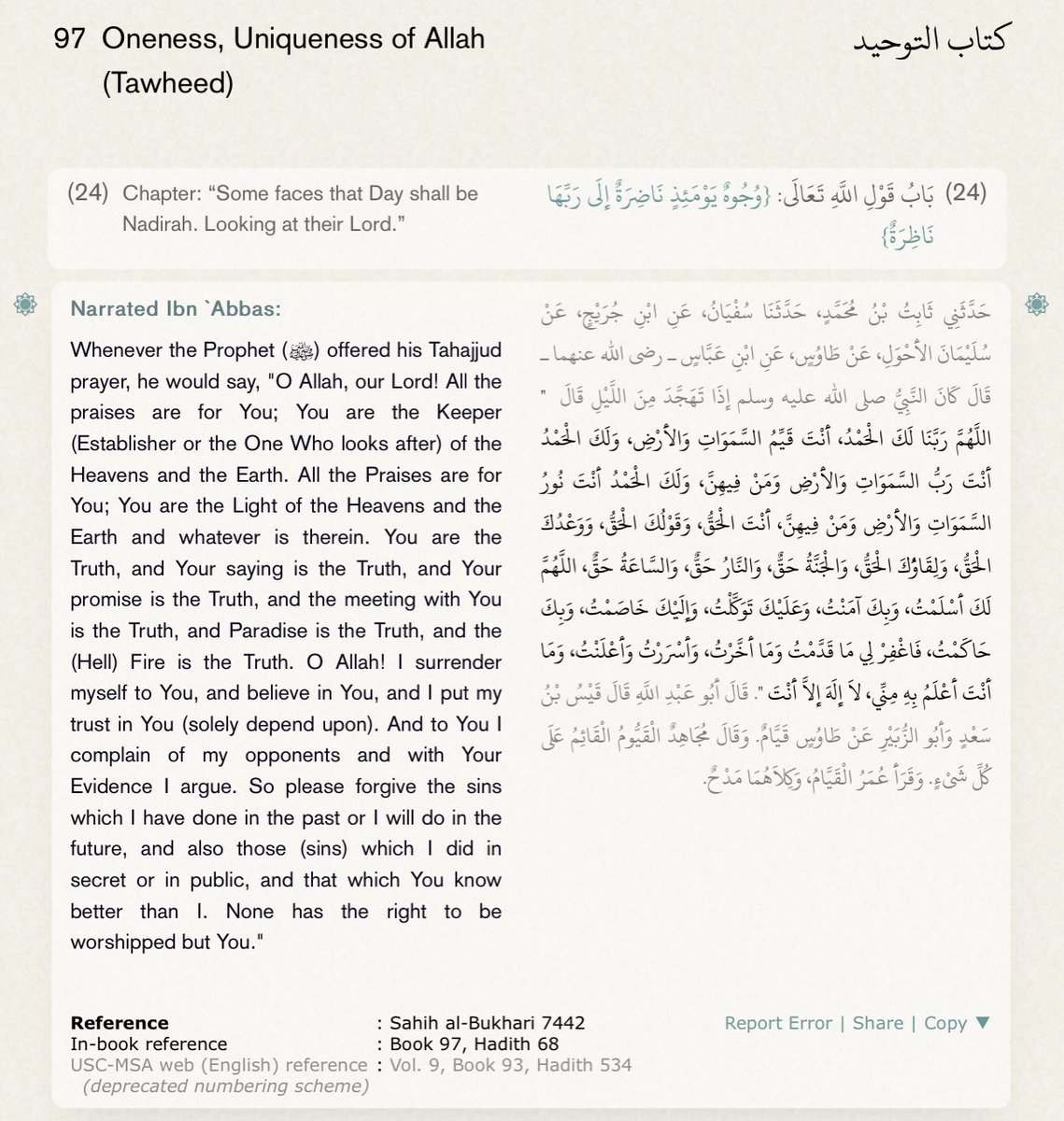
When I commented to Sh. Ashraf that the Wadhīfah is of the most beautiful awrād I have ever read in my life, he responded with words that are very precious to me….
He said, “Iman, your emotions manifest the Divine Attributes.”
He said, “Iman, your emotions manifest the Divine Attributes.”
Last Friday, when I was reading surat al-Kahf, a sister I’ve been out of touch with for awhile came into my heart. It was random, but I decided to reached out to her and ask about her.
The next day she told me that her father had passed at the time I texted her. Subhan Allah.
The next day she told me that her father had passed at the time I texted her. Subhan Allah.
Husn adh-dhann keeps the heart and tongue clean.
Few understand this.
الحمد لله ربّ العالمين
Few understand this.
الحمد لله ربّ العالمين
• • •
Missing some Tweet in this thread? You can try to
force a refresh









